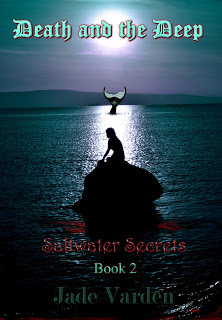Jade Varden's Blog, page 9
August 15, 2015
Cover Reveal: Saltwater Secrets, Book 2
Published on August 15, 2015 05:30
August 13, 2015
Writing 101 Redux: Quotes and Song Lyrics
Adding quotes and song lyrics to your book is a great way to convey certain moods and feelings. It' s a great way to set the stage. But is it legal?
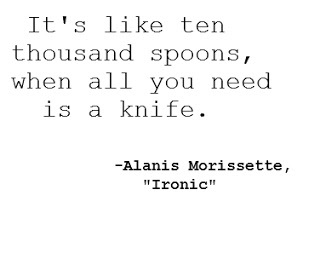
Get the answer in today's Throwback Thursday Writing 101 tip, and find out all the legalities of the quotes and lyrics you want to use.

Get the answer in today's Throwback Thursday Writing 101 tip, and find out all the legalities of the quotes and lyrics you want to use.
Published on August 13, 2015 05:30
August 12, 2015
Writing 101: When Characters Grow Backwards
As you experience things in life, you learn and change because of them. This happens to the best book characters, too. Great books have character development...but there’s no rule that your character always has to improve as a person. Sometimes, characters end up growing backwards before they can start moving forward.
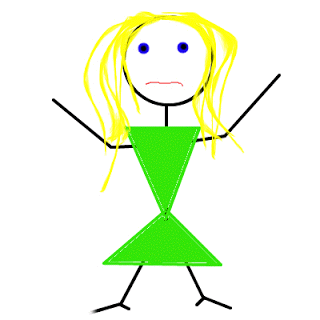
Lessons Learned
As an author, it’s your job to put your characters through awful situations. Give them what they want and take it away. Make them fall and hurt themselves at the wrong time. Reveal a terrible betrayal. Some characters take in all this badness and become better people because of it. But, some don’t. People don’t always improve through life. Some of them pick up more flaws as they go along. This is what I like to call growing backwards. It can be a lot of fun to write, if you can make your readers hang around to read it.
There’s something a little fun about a character who does the wrong thing. Extremely flawed characters remind us readers of ourselves. Most people are their own harshest critic. We can see the flaws in ourselves and find things to dislike. So a character who has some of these same negative traits becomes easy to relate to. And I personally have found that I like a flawed character much more than a perfect one. But when you’re making your character pick up new flaws along the way, you’ve got to be careful about how bad they become.
We’re all trained to root for the good guy to win, most of the time. If your main character becomes too unlikable, readers aren’t going to root for them and they may not hang around the finish the rest of the story. So be careful when characters are growing backwards. Let them be flawed and make mistakes, but don’t allow them to become evil in the eyes of the reader.
Because eventually, your character is going to have to learn from some of those mistakes. Your character is going to have to face what they’ve done and at some point, hopefully, become a better person for it. This is the big payoff of making a character grow backwards: there’s an eventual reward. Write it well, and your readers will reward you for your effort.

Lessons Learned
As an author, it’s your job to put your characters through awful situations. Give them what they want and take it away. Make them fall and hurt themselves at the wrong time. Reveal a terrible betrayal. Some characters take in all this badness and become better people because of it. But, some don’t. People don’t always improve through life. Some of them pick up more flaws as they go along. This is what I like to call growing backwards. It can be a lot of fun to write, if you can make your readers hang around to read it.
There’s something a little fun about a character who does the wrong thing. Extremely flawed characters remind us readers of ourselves. Most people are their own harshest critic. We can see the flaws in ourselves and find things to dislike. So a character who has some of these same negative traits becomes easy to relate to. And I personally have found that I like a flawed character much more than a perfect one. But when you’re making your character pick up new flaws along the way, you’ve got to be careful about how bad they become.
We’re all trained to root for the good guy to win, most of the time. If your main character becomes too unlikable, readers aren’t going to root for them and they may not hang around the finish the rest of the story. So be careful when characters are growing backwards. Let them be flawed and make mistakes, but don’t allow them to become evil in the eyes of the reader.
Because eventually, your character is going to have to learn from some of those mistakes. Your character is going to have to face what they’ve done and at some point, hopefully, become a better person for it. This is the big payoff of making a character grow backwards: there’s an eventual reward. Write it well, and your readers will reward you for your effort.
Published on August 12, 2015 05:30
August 11, 2015
Writing 101: How Do You Compare to Other Authors?
I’ve made no secret of the fact that I like to delve into the background of famous authors. I want to know when they started writing, how they got published, if they did anything weird in their spare time, even how much money they had when they died. But that’s a bad use of my time, because I inevitably start comparing myself to those other authors. Do you ever catch yourself doing the same thing?
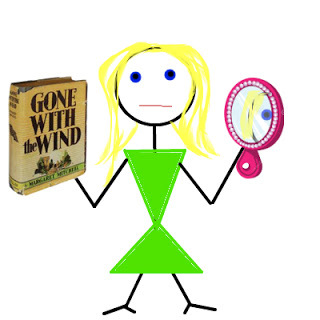
Stacking Up
For a little while there, I was totally obsessed with author origin stories. One author in an interview talked about how she started writing a short story. Then, she said, the next thing she knew she had a 200,000-word book. Yeah, right. Reading stories like this used to make me feel bad, because I sweat to put 200 words on the page most days. So I stopped comparing myself to them. And now, I feel better.
There is a moral to this story: just don’t compare yourself to other authors. Don’t worry about how J.K. Rowling got published, or how Stephen King’s first book got rejected. Don’t read about how easy it was for them, ultimately, to achieve lasting book success. Because comparing yourself to them is inevitably going to make you feel bad, unless you’re a national celebrity in England or practically the king of a town in Maine. Don’t compare yourself to any other author, no matter who they are, when it comes to any aspect of who you are as an author.
You’re not Stephen King, and neither am I. You don’t want to compare yourself to another author because you wouldn’t really want to be another author. You have your own voice and your own stories to tell. That’s why your story of being an author is never going to look like anyone else’s story. So don’t worry about comparing yourself to them. Let them, one day, worry about comparing themselves to you.
Because in my weird days of other-author obsession, there was one thing that I learned through my mad quest: all of their stories are different. Each one of them has a unique origin story, some original anecdote all about how they got published. One day, you’re going to write your own author story as well. And maybe one day, I’ll be sitting around typing on my blog obsessing about you.

Stacking Up
For a little while there, I was totally obsessed with author origin stories. One author in an interview talked about how she started writing a short story. Then, she said, the next thing she knew she had a 200,000-word book. Yeah, right. Reading stories like this used to make me feel bad, because I sweat to put 200 words on the page most days. So I stopped comparing myself to them. And now, I feel better.
There is a moral to this story: just don’t compare yourself to other authors. Don’t worry about how J.K. Rowling got published, or how Stephen King’s first book got rejected. Don’t read about how easy it was for them, ultimately, to achieve lasting book success. Because comparing yourself to them is inevitably going to make you feel bad, unless you’re a national celebrity in England or practically the king of a town in Maine. Don’t compare yourself to any other author, no matter who they are, when it comes to any aspect of who you are as an author.
You’re not Stephen King, and neither am I. You don’t want to compare yourself to another author because you wouldn’t really want to be another author. You have your own voice and your own stories to tell. That’s why your story of being an author is never going to look like anyone else’s story. So don’t worry about comparing yourself to them. Let them, one day, worry about comparing themselves to you.
Because in my weird days of other-author obsession, there was one thing that I learned through my mad quest: all of their stories are different. Each one of them has a unique origin story, some original anecdote all about how they got published. One day, you’re going to write your own author story as well. And maybe one day, I’ll be sitting around typing on my blog obsessing about you.
Published on August 11, 2015 05:30
August 10, 2015
Famous Authors Who Died Broke
Lots of authors don’t find fame and fortune during their own lifetimes, even some of the biggest names you’ve never read. It’s hard to believe, but all of these famous authors died broke.
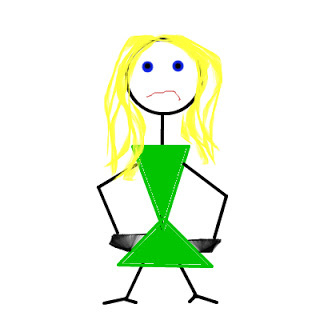
It’s Not About the Money (Because You Won’t Make Any)
Book writing is not a money-making game by any stretch of the imagination, unless you’re J.K. Rowling (but I’m pretty sure she doesn’t read this blog, so I think we’re safe there). Most authors, even the ones who manage to achieve a lasting legacy of fame and readership, actually pass from the world in relative obscurity without much money in their pockets. All of these famous names did, though you have certainly read at least one -- if not all -- of their books.
Edgar Allen Poe was a quintessential starving artist. He managed to get stories published and made some money from his writing, but not much. He struggled financially his entire life, moving from one job to another while he continued to publish his stories. When he died, he was completely broke.
Even if you haven't read his books, you've heard H.P. Lovecraft's name. He's well-known today for his horror stories, but he struggled to get published in his own lifetime. While he lived, his work only ever appeared in pulp fiction magazines that generally weren't widely- read. He lived without food so he could buy stamps sometimes. He died in his own hometown in complete poverty.
We all had to read "Moby Dick" in school, but didn't get the assignment early enough to help out author Herman Melville. He's one of the great American storytellers, but he died poor with all his works no longer in print. Melville's first book "Typee" was a bestseller, but his career steadily declined after that. He died a has-been, and never lived to see himself become a legend.

It’s Not About the Money (Because You Won’t Make Any)
Book writing is not a money-making game by any stretch of the imagination, unless you’re J.K. Rowling (but I’m pretty sure she doesn’t read this blog, so I think we’re safe there). Most authors, even the ones who manage to achieve a lasting legacy of fame and readership, actually pass from the world in relative obscurity without much money in their pockets. All of these famous names did, though you have certainly read at least one -- if not all -- of their books.
Edgar Allen Poe was a quintessential starving artist. He managed to get stories published and made some money from his writing, but not much. He struggled financially his entire life, moving from one job to another while he continued to publish his stories. When he died, he was completely broke.
Even if you haven't read his books, you've heard H.P. Lovecraft's name. He's well-known today for his horror stories, but he struggled to get published in his own lifetime. While he lived, his work only ever appeared in pulp fiction magazines that generally weren't widely- read. He lived without food so he could buy stamps sometimes. He died in his own hometown in complete poverty.
We all had to read "Moby Dick" in school, but didn't get the assignment early enough to help out author Herman Melville. He's one of the great American storytellers, but he died poor with all his works no longer in print. Melville's first book "Typee" was a bestseller, but his career steadily declined after that. He died a has-been, and never lived to see himself become a legend.
Published on August 10, 2015 05:30
August 8, 2015
Secrets in the Sea
Book 2 in the Saltwater Secrets trilogy is coming out soon, so you'd better catch up on the story right now. This weekend only, you can download Saltwater Secrets, Book 1: Song of the Sea. Get it FREE at Dropbox.

I always knew who my mother was. I always knew where I belonged. And I always knew I wanted to be on the water, like my dad.
…Until I was forced to go out into the water, anyway. Out there, you feel really lonely. But you’re never alone. There is more life and emotion under the waves than most humans will ever see, more than I could have ever imagined. Down there, it’s an entire world of rage and hate, love and hope. It’s a world of fear.
It’s a world of war.
Once, my mother told me she would sing me a song of the sea. But under the waves, the only music I ever heard was the sound of screams.

I always knew who my mother was. I always knew where I belonged. And I always knew I wanted to be on the water, like my dad.
…Until I was forced to go out into the water, anyway. Out there, you feel really lonely. But you’re never alone. There is more life and emotion under the waves than most humans will ever see, more than I could have ever imagined. Down there, it’s an entire world of rage and hate, love and hope. It’s a world of fear.
It’s a world of war.
Once, my mother told me she would sing me a song of the sea. But under the waves, the only music I ever heard was the sound of screams.
Published on August 08, 2015 05:30
August 6, 2015
Writing 101 Redux: That, Which, Whom
Do you know when to use that instead of which? What about the difference between whom and who?
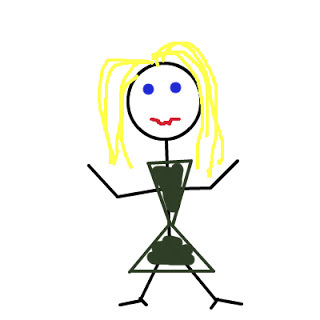
Get it all figured out in today's Throwback Thursday Writing 101, and get your grammar perfect.

Get it all figured out in today's Throwback Thursday Writing 101, and get your grammar perfect.
Published on August 06, 2015 05:30
August 5, 2015
Writing 101: Breaking Up is Hard to Write
Characters in books are made to fall in love, aren’t they? It happens so often, in fact, that there’s an entire book genre that’s just about characters falling in love. It’s nice to fall in love, and it’s nice to write about falling in love. It’s even nice to read about, and that’s why it gets written about. But in the real world, that shining coin has another side: the breakup. This is a very hard thing to write, but you can’t always avoid it. So flex your typing fingers, and get ready to break some hearts.
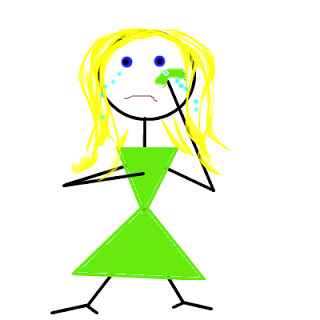
We’ll Always Have Chapter One
Sometimes break ups happen on the page, too. There are a few different ways to write it, and I’ve rarely seen it done well. But it is a fact that when characters fall in love, a break up can always happen later...even if it’s only a temporary one.
Depression: Many authors follow a break up with depression. How long did Bella sit in her room? A sense of loss is a very common reaction to a break up, but it’s depressing to write and depressing to read. Lots of readers get turned off by characters who wallow. Taking action: On the flip side, characters who become very actionable after a break up are very hard to control. Judgment is commonly impaired, and reckless action results. This can be fun to read, but you’re the one who has to clean the mess up later so just keep that in mind. A character coming off a break up might go out drinking or otherwise looking for trouble, even when you wish they would be reasonable instead.Moving on: Some people move on to a new romance after a break up. This is the inevitable conclusion to most stories involving a love triangle. This is also the trickiest to write. You don’t want a character to seem heartless for moving on too quickly, and you don’t want the character who got dumped to become too sympathetic (unless it’s the hero and he’s watching someone else move on). You either have to turn the rejected character into a villain or make sure that they, too, are moving on into a new relationship. If you kill the rejected character, then the main love interest always won a little bit by default in some minds.
Breaking up is hard to write because it involves a lot of complex emotions. Figure out how your character will work through it, and make it feel like a natural transition for them. You can use break ups to make characters stronger, to present them with another challenge and to make them more human. Break ups happen, even to the best of characters. It takes the best of writers to put it on the page in a believable, and eventually rewarding, way.

We’ll Always Have Chapter One
Sometimes break ups happen on the page, too. There are a few different ways to write it, and I’ve rarely seen it done well. But it is a fact that when characters fall in love, a break up can always happen later...even if it’s only a temporary one.
Depression: Many authors follow a break up with depression. How long did Bella sit in her room? A sense of loss is a very common reaction to a break up, but it’s depressing to write and depressing to read. Lots of readers get turned off by characters who wallow. Taking action: On the flip side, characters who become very actionable after a break up are very hard to control. Judgment is commonly impaired, and reckless action results. This can be fun to read, but you’re the one who has to clean the mess up later so just keep that in mind. A character coming off a break up might go out drinking or otherwise looking for trouble, even when you wish they would be reasonable instead.Moving on: Some people move on to a new romance after a break up. This is the inevitable conclusion to most stories involving a love triangle. This is also the trickiest to write. You don’t want a character to seem heartless for moving on too quickly, and you don’t want the character who got dumped to become too sympathetic (unless it’s the hero and he’s watching someone else move on). You either have to turn the rejected character into a villain or make sure that they, too, are moving on into a new relationship. If you kill the rejected character, then the main love interest always won a little bit by default in some minds.
Breaking up is hard to write because it involves a lot of complex emotions. Figure out how your character will work through it, and make it feel like a natural transition for them. You can use break ups to make characters stronger, to present them with another challenge and to make them more human. Break ups happen, even to the best of characters. It takes the best of writers to put it on the page in a believable, and eventually rewarding, way.
Published on August 05, 2015 05:30
August 4, 2015
Writing 101: The Rules of a Trilogy
There are book series, and then there are trilogies. The three stories that make up a trilogy are a series, but they have to be much more than that. If you write your own, are you going to follow the rules of a trilogy?

It Comes in Threes
There are many great book and movie trilogies out there. “Star Wars,” which is both, is a huge fan favorite. I’ll hold up “Back to the Future” as an example of a perfect trilogy any day. But if you really want to know the rules, there’s a movie trilogy you can watch to discover most of them: “Scream.” When it comes to writing your trilogy as a series of three books, the greatest trilogies ever told can help guide you through the specific rules that are now considered to be a requirement.
The first book: Even a planned trilogy may not be a hit with fans. This is why the first book of many trilogies serves two purposes. First, it sets up the action that will take place in the second book. Second, it can serve as a stand-alone story if needed. The second book: When it comes to the second book of a trilogy, there’s a lot that needs to be accomplished. Usually, some previously unknown information is revealed (“Scream”). The action, the violence and the romance all have to be bigger and better than they were in the first book. And, most importantly of all, the story has to end on a huge cliffhanger.The third book: When the trilogy gets to the third book, the story is over. All loose ends must be tied up and the story must resolve itself. Usually, something from the first book will make an appearance here to finalize the story once and for all.
The rules of a trilogy seem simple, but actually writing a three-book series that maintains consistent excitement and holds interest throughout is a tricky business. It can be restrictive and difficult to write within an established framework of any kind. Make the rules work for you and with the story you’re going to tell, and maybe yours will become one of the great trilogies.

It Comes in Threes
There are many great book and movie trilogies out there. “Star Wars,” which is both, is a huge fan favorite. I’ll hold up “Back to the Future” as an example of a perfect trilogy any day. But if you really want to know the rules, there’s a movie trilogy you can watch to discover most of them: “Scream.” When it comes to writing your trilogy as a series of three books, the greatest trilogies ever told can help guide you through the specific rules that are now considered to be a requirement.
The first book: Even a planned trilogy may not be a hit with fans. This is why the first book of many trilogies serves two purposes. First, it sets up the action that will take place in the second book. Second, it can serve as a stand-alone story if needed. The second book: When it comes to the second book of a trilogy, there’s a lot that needs to be accomplished. Usually, some previously unknown information is revealed (“Scream”). The action, the violence and the romance all have to be bigger and better than they were in the first book. And, most importantly of all, the story has to end on a huge cliffhanger.The third book: When the trilogy gets to the third book, the story is over. All loose ends must be tied up and the story must resolve itself. Usually, something from the first book will make an appearance here to finalize the story once and for all.
The rules of a trilogy seem simple, but actually writing a three-book series that maintains consistent excitement and holds interest throughout is a tricky business. It can be restrictive and difficult to write within an established framework of any kind. Make the rules work for you and with the story you’re going to tell, and maybe yours will become one of the great trilogies.
Published on August 04, 2015 05:30
August 3, 2015
Maybe You'll Be Like Jane Austen, After You Die
If you've ever seen "Becoming Jane," you've been exposed to a few lies about the author's life. The truth is, no one really knew or cared about Jane Austen when she died at age 41 -- other than her immediate family and friends, of course. She'd published four novels then...all of them anonymously. Austen didn't achieve fame until many years after her death, in fact. So you can always hope for that, if things don't work out while you live.
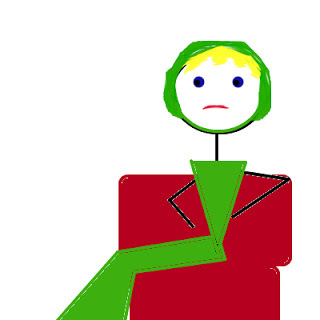
This, and Other Dark Thoughts
If you have a bit of a dark streak, like I do, then that should serve as a sort of weirdly comforting thought. Jane Austen's books were written by "A Lady" as far as the reading public is concerned. Her brother Henry revealed her name only after she died, when he published "Persuasion" and "Northanger Abbey."
As you probably know, Jane Austen went on to become one of the most celebrated authors in history. She’s mentioned on “Jeopardy” every other week, no exaggeration, and you can find active Goodreads threads about her any time of day. She didn’t sign a bunch of autographs or see the love of her life at a reading of one of her books, or anything like that...but her words do live on. Her stories continue, and people born more than 100 years after her death still read them.
Lots of authors don’t find financial success or fame during their own lifetimes, yet they are still read today. More than one author who is now celebrated died broke and miserable, and they inspire new writers all the time. So maybe one day, you’ll be like Jane Austen, too.

This, and Other Dark Thoughts
If you have a bit of a dark streak, like I do, then that should serve as a sort of weirdly comforting thought. Jane Austen's books were written by "A Lady" as far as the reading public is concerned. Her brother Henry revealed her name only after she died, when he published "Persuasion" and "Northanger Abbey."
As you probably know, Jane Austen went on to become one of the most celebrated authors in history. She’s mentioned on “Jeopardy” every other week, no exaggeration, and you can find active Goodreads threads about her any time of day. She didn’t sign a bunch of autographs or see the love of her life at a reading of one of her books, or anything like that...but her words do live on. Her stories continue, and people born more than 100 years after her death still read them.
Lots of authors don’t find financial success or fame during their own lifetimes, yet they are still read today. More than one author who is now celebrated died broke and miserable, and they inspire new writers all the time. So maybe one day, you’ll be like Jane Austen, too.
Published on August 03, 2015 05:30

